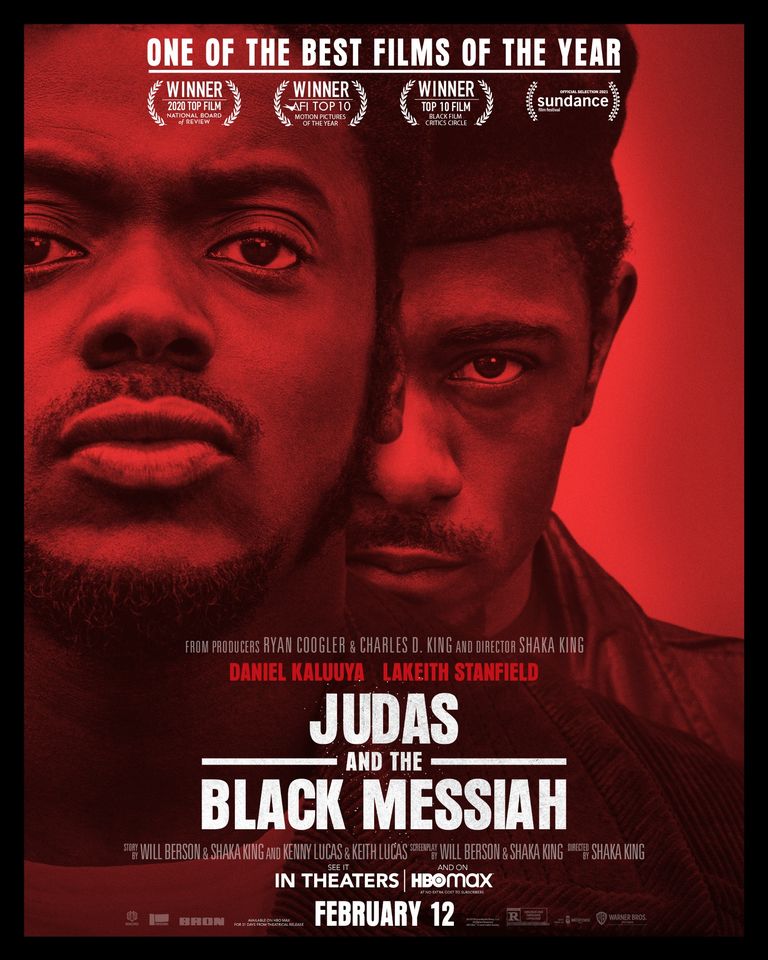HOLLYWOOD—It is amazing how certain films appear timeless or happen to get released at a time when the world is in utter chaos. The social relevance of “Judas and the Black Messiah” with the Black Lives Matter movement, racial injustice, police brutality and so many other social issues in America seem like a premonition you’d never imagine.
This movie directed by Shaka King places the audience in Chicago in the late 60s and early 70s, as Fred Hampton portrayed with conviction and tenacity by Daniel Kaluuya is haunting as hell. It is without a doubt one of Kaluuya’s finest performance in his acting career. As a viewer you feel you are watching Fred Hampton in action, his ability to speak, his charisma and ability to deliver what sometimes feels like sermons to the people of his community is palpable.
Yes, one might question his push to murder cops, especially those who were dirty cops to say the least; it is no question why he was feared by the FBI and its director J. Edgar Hoover. Hoover is portrayed by Martin Sheen and he comes across a bit cartoonish in my opinion with the makeup, but his hatred for African Americans and what he sensed a political revolution that was about to take over screams why he was so destined to get his agents to infiltrate Hampton’s organization and to take him down from the inside.
That narc or rat is portrayed by LaKeith Stanfield as Bill O’Neal. Stanfield delivers a complicated performance where you have a character, who knows what he is doing is wrong and fears the ramifications if he is caught. However, at the same time, he is doing so to prevent himself from going to prison for impersonating a federal authority and grand theft auto.
I hated Bill O’Neal watching this movie and that is a testament of fine acting from Stanfield. Seeing this guy betray his own race, even though he knew what he was doing was wrong and worrying about how he would be perceived by his own race for his deception adds onto that dichotomy if we’re being honest America. The guy is dreaming about being murdered if the truth about his deception comes to light, and it constantly haunts him throughout the entire movie.
Talk about being conflicted. He is guided by an FBI agent who seems poised to prove his stature to his boss, in Roy Mitchell (Jesse Plemons) who starts off slightly innocent, but when his boss questions him about race; it seems to instill some level of fear, arrogance, virility and wickedness that seems to transpire with the click of a switch.
“Judas and the Black Messiah” continues to harken on that issue of the relationship between the police and the African-American community. There is a level of distrust that exists, one that has existed for years and this movie just continues to highlight the fear African-Americans have when it comes to the police, and in some essence the fear cops embody at the idea of a race rising up and taking them out one by one.
Hampton is a layered character, one who gets in front of an audience and speaks without hesitation or fear, but when it comes to his lover, Deborah (Dominique Fishback), he is quiet and reserved. Fishback delivers a subtle by resonating performance showing an inner strength. Fighting to maintain sane when the father of her child is locked up on a bogus charge. She questions his motives at times and even forces him to think about his actions with subtle pokes.
The ending just eats at you, especially as an African-American with incidents involving Breonna Taylor and George Floyd feeling more potent. There are indeed good authority figures out there, but at the same time there are bad, and when you see dirt it has to be exposed, even if you don’t want to see it transpire. “Judas and the Black Messiah” looks at the good, the bad and the ugly of the 1970s as African-Americans, the police and race collided. It is hard to realize in 2021 it appears as much as we want to think things have changed, they haven’t.






